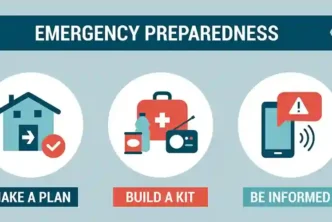Sales effectiveness is a critical aspect of any business that wishes to grow and maintain its client base. To improve sales effectiveness, understanding various strategies and techniques is essential. In this article, we will explore five key strategies that can significantly boost your sales effectiveness.
Understanding Sales Effectiveness Concepts
Sales effectiveness is all about streamlining your sales process and making it as efficient as possible. Understanding the science behind successful sales tactics can yield significant improvements in your company’s overall performance.
One key concept to comprehend is sales effectiveness, which refers to a measure of how well a sales team converts leads into customers. Understanding the dynamics of customer behavior, market trends, and the competitive landscape is crucial to making informed sales decisions.
Another important concept in sales effectiveness is the development of personalized sales strategies that resonate with your target audience. Furthermore, improving relationships and engagement with clients accelerate sales performance.
Employee engagement and motivation also play a vital role in maximizing your sales effectiveness, as employees are your primary contact point with potential customers.
Emphasizing the Role of Data Analysis in Improving Sales
ALT: CRM software dashboard highlighting key sales performance indicators
In the modern era, data analysis holds enormous potential for improving sales. The detailed, trend-based analysis provides insights into market shifts, customer behavior patterns, and sales performance. These insights can guide strategy development and lead to decision-making accuracy.
Data analysis can identify profitable customer segments, successful sales strategies, and areas requiring improvement. This understanding helps to focus resources on areas with higher potential returns, thus increasing sales efficiency.
Moreover, data analysis can also predict future trends and give early warnings of potential obstacles, giving your company a competitive advantage over peers.
The integration of data analysis with sales strategy can also reveal unmet customer needs, kick-starting the innovation process in your company and leading to the development of new products and services.
Implementing Effective Training Programs for Sales Team
The effectiveness of a sales team largely depends on their skills, knowledge, and motivation. An effective training program emphasizes these areas, resulting in improved sales performance.
Regular training sessions provide updated information on product developments, market trends, and improved sales techniques. This continually enhanced knowledge empowers the sales team to understand the needs of the customers better and provide appropriate solutions.
Training also instills confidence in the sales team, allowing them to handle difficult situations with ease, thus increasing their productivity. And, ultimately, more confident salespeople result in happier customers.
Importantly, an ideal training program should be activity-based, emphasizing practical skills over theoretical knowledge.
Harnessing Technology for Boosting Sales Performance
ALT: Sales manager training new staff on effective sales techniques
Technology has revolutionized the way sales are made. Implementing technology can streamline your sales process, making it more efficient and less prone to errors.
For instance, Customer Relationship Management (CRM) systems can automate repetitive tasks, freeing up your sales team to concentrate on customer interactions. They also provide valuable insights into customer behavior and preferences, allowing for targeted marketing efforts.
Moreover, technology facilitates better communication and collaboration within the sales team, encouraging them to share ideas and sales strategies.
Finally, the use of Artificial Intelligence and Machine Learning algorithms can predict customer behavior and identify sales opportunities.
Monitoring and Evaluating Sales Strategy Success
Last but not least, monitoring and evaluation of the implemented sales strategies is crucial. It’s impossible to improve what you don’t measure. Regular assessment provides an objective report of your performance, aiding substantial growth and improvement.
Without proper monitoring and evaluation, you risk continuing with suboptimal or failing strategies, potentially damaging business profits.
Key Performance Indicators (KPIs) are the core of any monitoring system, providing clear metrics against which success can be measured. Remember to set realistic and achievable KPIs for your sales team to strive for.
Aim for regular evaluations and use these to provide feedback to your team. This will not only help identify problems early but also provide motivation through recognizing successful performance.
Overall, improving sales effectiveness involves a strategic blend of understanding the necessary sales concepts, integrating data analysis, implementing effective training programs, harnessing technology, and continuous monitoring and evaluation of strategies.





